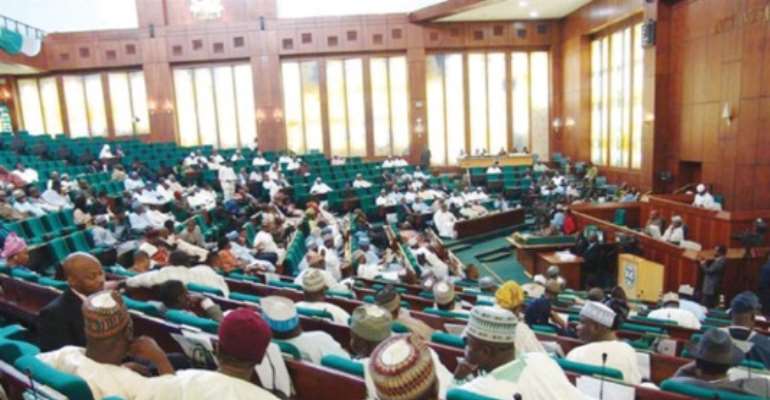Constitution Amendment: NASS Appeals Court Ruling

ABUJA, Nov 09, (THEWILL) - The National Assembly today went to the Court of Appeal to challenge the Federal High Court ruling, which nullified the provisions of the first alteration of the 1999 Constitution.
In a four-page notice of appeal against the lower court’s, which was filed on its behalf by Yusuf Ustaz Usman, SAN, the National Assembly asked the Appeal Court to set aside the ruling and judgment of the lower court delivered on November 8, 2010.
They argued that the trial judge erred in law in holding that the plaintiff has locus standi to institute the action.
Further, the National Assembly averred that the matter is that of the right of the general public and that there is no evidence that the plaintiff had any grievance or interest that is over and above that of any other Nigerian; and that “the plaintiff did not have the fiat of the Attorney General of the Federation to institute the action.”
Usman added also that the learned trial judge “erred in law in holding that the Presidential Assent is necessary in order to amend the Constitution of the Federal Republic of Nigeria when Section 9 of the said Constitution is a special provision which stipulates the conditions and procedures for the amendment of the Constitution.”
He therefore urged the Appeal Court to nullify the ruling on the ground that the “trial judge violated the Appellant’s natural and Constitutional rights of fair hearing when he failed to consider the additional authorities submitted by the Appellant’s Counsel which authorities were also served on the Respondent’s Counsel far before the ruling/judgment was delivered.”
However, Senates spokesman, Senator Ayogu Eze, told a press conference that the ruling delivered by the Federal High Court in Lagos has nothing to do with the second alteration of the constitution, adding that the problem is with the first alteration.
“We will go ahead to do our job, first we are meeting with the Speakers of the State Assemblies when I leave here. We will continue the process. I did say in my statement yesterday that when the matter has been unraveled, we shall have no option than to abide by the final decision of the highest court on the matter.
“So it’s not something personal. We are only saying that if the constitution has made arrangement for this provision that the sovereignty of the constitution belongs to the people and exercised through their representatives and does not need to subject it to the approval of a single office. By this, why didn’t the argument arise that the governors sign the versions that were sent to their states for approval before they come back for collation, and then we take it to the president for his assent?”
Senator Eze however allayed the fears that the judgment would heat up the polity and noted that the process is “good to go on because after we have tested it and come to a crystallized decision, nobody is going to revisit it in the future. We are setting landmarks and these landmarks are things that will benchmark our democracy and make our democracy what it should be. It is a healthy development so far.”
On the new Electoral bill initiated by the Senate, the lawmaker said the decision was in line with the provision of the constitution, saying that: “What we are introducing is a private member bill and it is not a decision that will affect the provision sent by the Executive,” he said.
